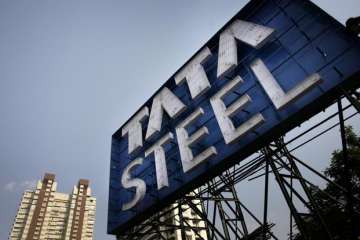In a move that ends months of uncertainty over the fate of a potential transaction that signifies the importance for the two companies in Europe’s difficult steel market, leading Indian steel-maker Tata Steel has entered into a joint venture with Germany’s Thyssenkrupp AG, setting the stage for a merger of their European assets.
Both companies have signed a memorandum of understanding to create a 50:50 joint venture, paving the way for a merger of their European units.
“Today’s announcement marks the latest step in building a future for Tata Steel’s activities in Europe which is sustainable in every sense,” Tata Steel Europe Chairman Andrew Robb said on Wednesday, following the signing of the MoU for the 50:50 venture.
The flat steel business of the two companies in Europe will be combined along with Thyssenkrupp's steel mill services.
"The proposed 50:50 joint venture - Thyssenkrupp Tata Steel - would be focused on quality and technology leadership, and the supply of premium and differentiated products to customers, with annual shipments of about 21 million tonnes of flat steel products," Tata Steel said in a press release.
"The proposed combination of businesses would be formed through a non-cash transaction framework, based on fair valuation where both shareholders would contribute debt and liabilities to achieve an equal shareholding in the venture," the release added.
Based in Amsterdam, the merged entity will have an annual turnover of about €15bn Rs 1.15 lakh crore), 48,000 employees, and annual shipments of about 21m tonnes of flat steel.
Tata Steel and Thyssenkrupp expect to conclude the deal in 2018, following a period where further detailed negotiations take place on the shape of the final agreement. The transaction would also be subject to shareholders’ approval and the scrutiny of competition authorities.
If through, the merger would create Europe’s second largest steel entity after ArcelorMittal.
The development follows negotiations for over a year and a half about a tie-up, after Tata abandoned attempts to sell its British operations in 2015 at the height of the steel crisis and sought other ways to secure its future.
The jobs of 4,000 Tata staff at its giant Port Talbot plant in Wales are expected to be safeguarded by the deal, with management of the two companies saying the merger would seek to improve capacity utilisation of the network across the three main hubs of IJmuiden in the Netherlands, Duisburg in Germany and Port Talbot, along with their related downstream facilities.
Announcing the deal, N Chandrasekaran, chairman of Indian parent Tata Steel, said: “Tata and Thyssenkrupp have a strong heritage in the global steel industry and share similar culture and values.
“This partnership is a momentous occasion for both partners, who will focus on building a strong European steel enterprise. The strategic logic of the proposed joint venture in Europe is based on very strong fundamentals and I am confident that Thyssenkrupp Tata Steel will have a great future.”
In March last year, Tata Steel decided to put its entire UK business on sale in the face of a slump in steel demand and prices, some nine years after it bought Corus Group Plc. for $12.9 billion in the biggest acquisition by an Indian company. Tata Steel Europe, struggling with poor steel demand and competition from cheap Chinese imports, had been a strain on Tata Steel, causing the parent to burn cash at a rate of about $1 billion a year.
Markets have reacted positively to the development, with shares of Tata Steel gaining 1 per cent in intraday trading.
Latest Business News
